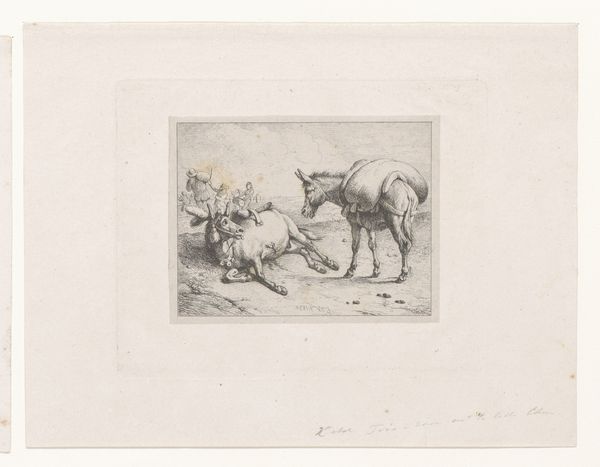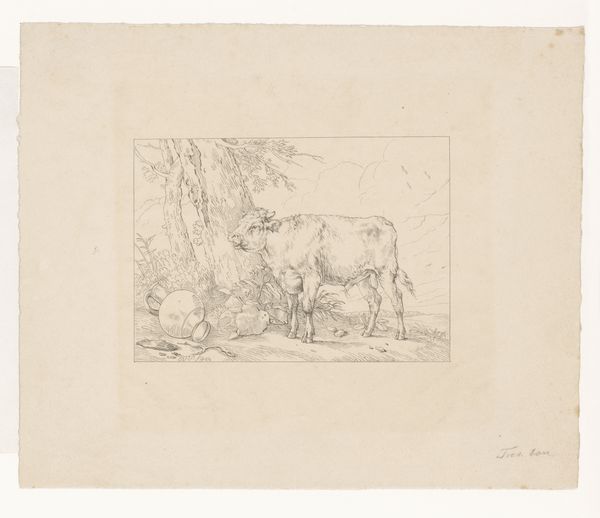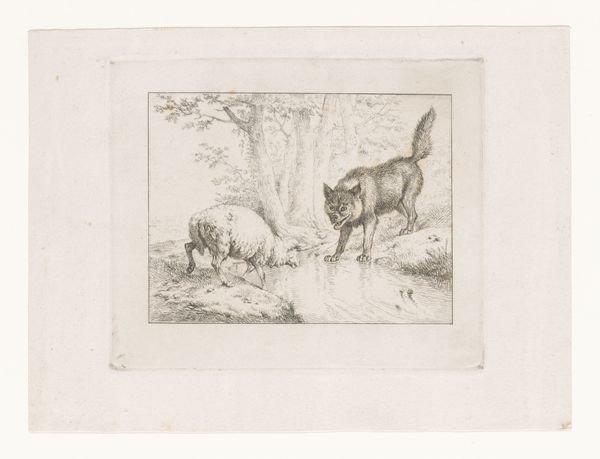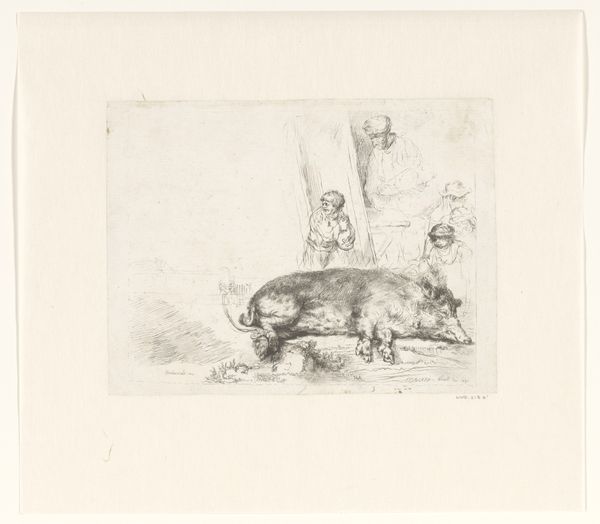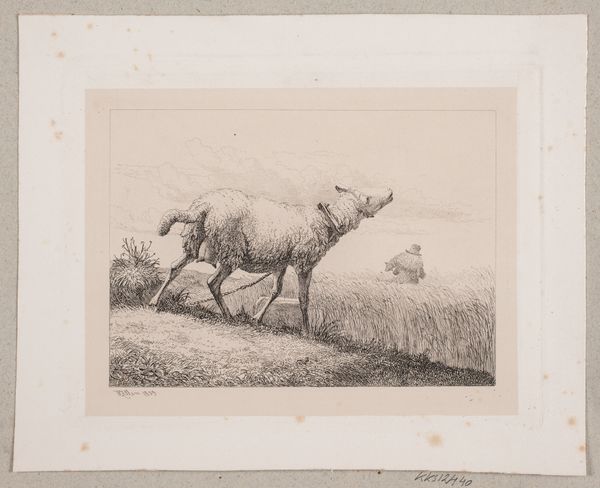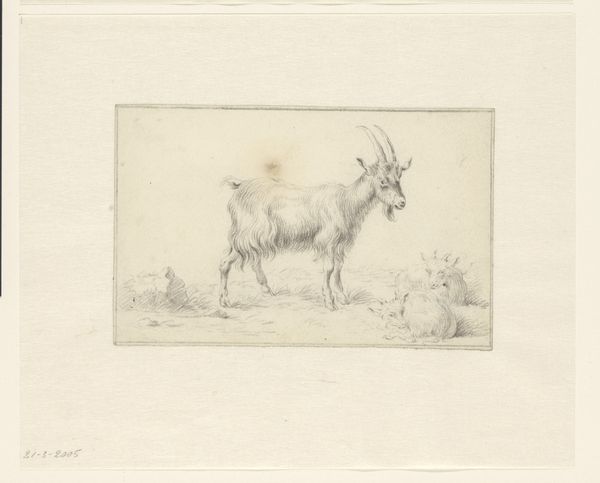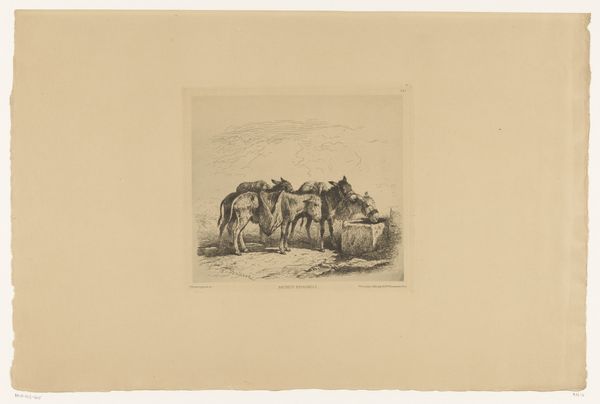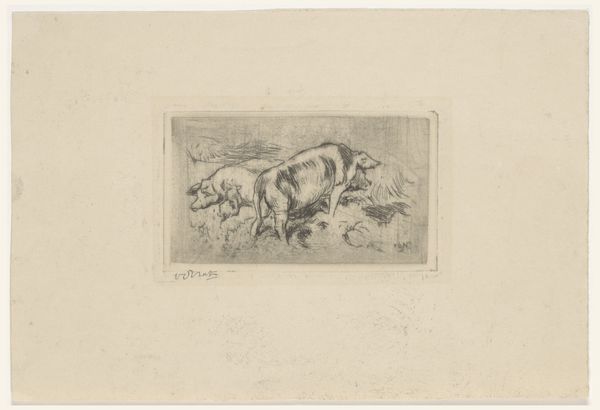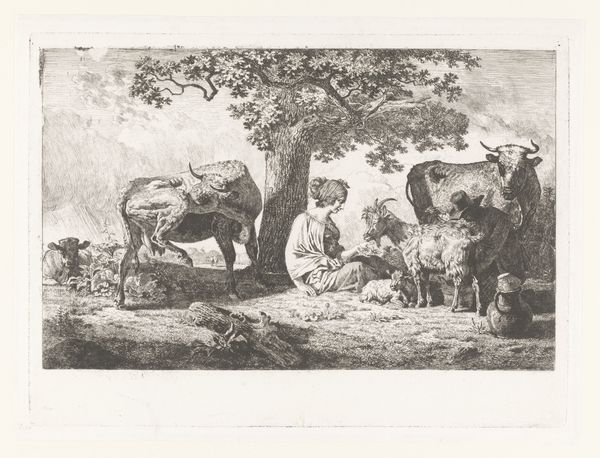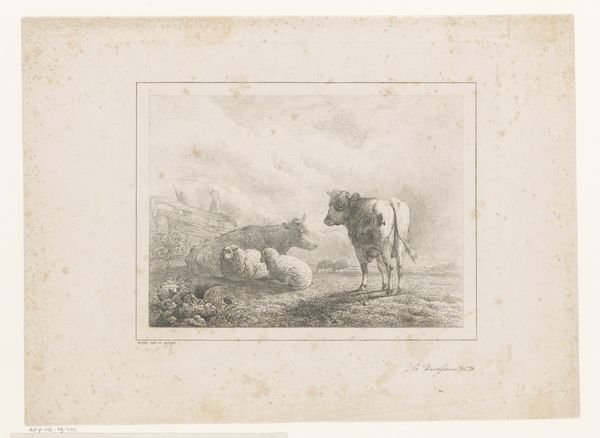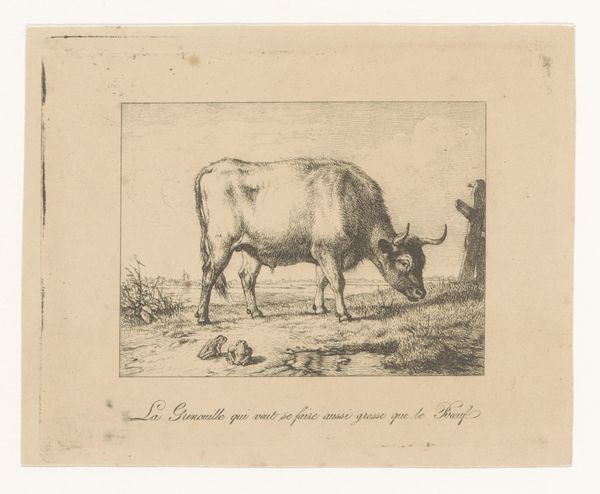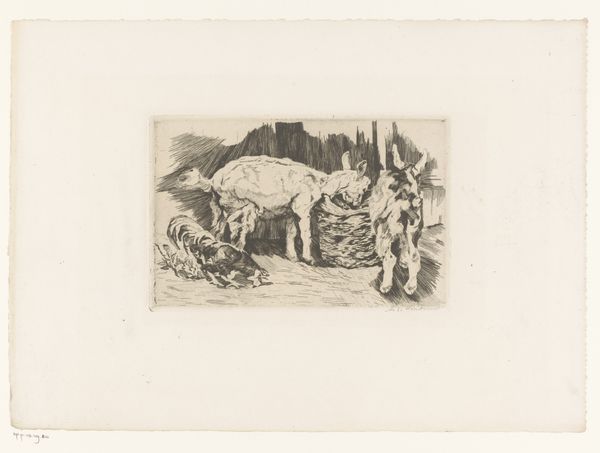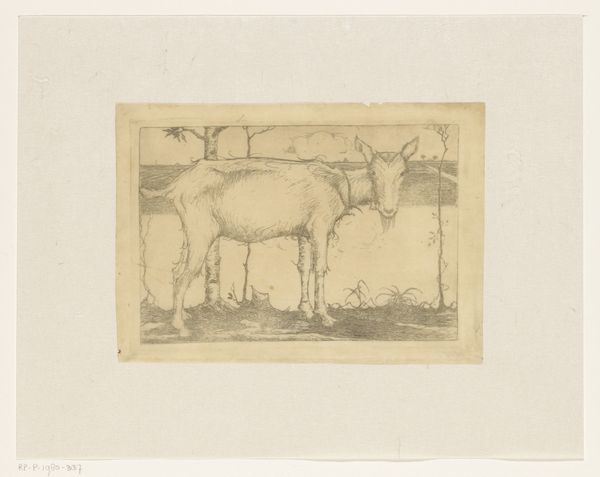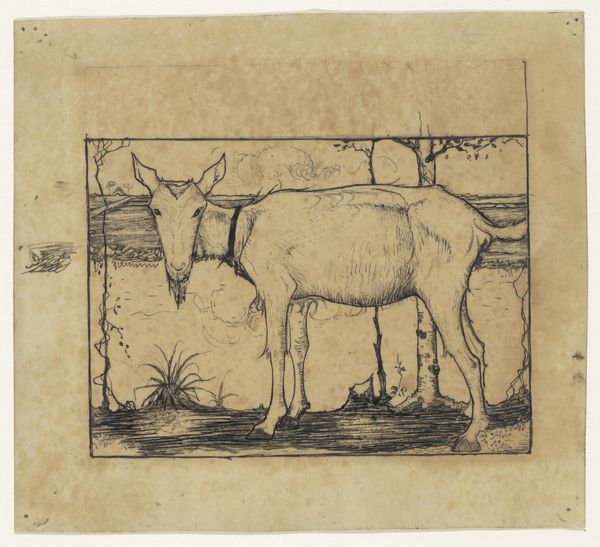
drawing, print, paper, ink, engraving
#
drawing
#
narrative-art
#
animal
#
ink paper printed
# print
#
landscape
#
paper
#
ink
#
engraving
#
realism
Dimensions: height 104 mm, width 122 mm
Copyright: Rijks Museum: Open Domain
Curator: Welcome. Here we have "Fabel van de wolf en het lam," or "Fable of the Wolf and the Lamb" by Eugène Verboeckhoven. It's an engraving on paper, made sometime between 1808 and 1881, now held at the Rijksmuseum. Editor: It’s stark. Not just black and white, but emotionally spare. Two animals, destined to collide by the look of things, at this small pool. I immediately feel a deep tension and something awful is about to happen. Curator: The narrative comes from Aesop’s fables, where a wolf accuses a lamb of muddying the stream from which it is drinking as a pretext to devour it. It's a tale of unjust power, a warning against tyrannical rule, very popular to illustrate at this time. Editor: Absolutely. It’s cleverly staged. The wolf's at the top, claiming the high ground and literally blocking any escape. The lamb is low and facing certain death, its body toward the audience, as though asking to see this for ourselves. Curator: Indeed. And note the artist’s masterful use of line to depict texture, the lamb’s wool versus the wolf’s harsher coat. It accentuates the difference in their natures, almost visually explaining the social hierarchy. Editor: The landscape, while pretty, does nothing to soften the message. It all takes place in this perfect box or cage where injustice prevails. And the little duck happily swimming… clueless! Oh, the irony! Curator: These fables played an important role in civic education. Prints like these were accessible to a wide audience, conveying moral lessons and commenting on contemporary political dynamics, especially among rising nationalist sentiments and questions of moral governance in Europe. Editor: Knowing that puts the teeth in it, doesn't it? It transforms the engraving from an innocent story to a social commentary and indictment of corruption in leadership. Curator: Verboeckhoven really captures something of his time and gives us cause to examine injustice even today. Editor: It certainly makes you think... Maybe even howl! Curator: A chilling final thought! Thanks for joining me on this look at Verboeckhoven’s engraving. Editor: Thank you! A true example of art reflecting life... or perhaps the other way around.
Comments
No comments
Be the first to comment and join the conversation on the ultimate creative platform.
